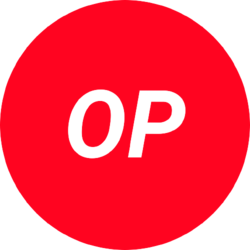
Understanding Governance Abstraction: A 'Friendly' Approach to DAO Management
- A New Outlook on Decentralized Autonomous Organizations (DAOs)
- Ross Campbell: A Key Player
- The DAO Usability Conundrum
- The Future of DAOs
- The DAOs of Tomorrow
- Role of Delegation in DAOs
- Designing DAOs for the Future
- Looking Ahead
A New Outlook on Decentralized Autonomous Organizations (DAOs)
Decentralized autonomous organizations, or DAOs, often face criticism and prophecies of their demise. These perceptions are similar to those prevalent in the broader crypto space. It's relatively simple to point out the shortcomings of groups and finance, especially in the digital realm. However, the fundamental concept of DAOs is the ability for individuals to collectively make decisions without needing to place trust in one another, facilitated through the use of their self-created code.
Ross Campbell: A Key Player
Ross Campbell is a reputable legal engineer and a core developer for LexDAO and KALI. He also holds a corporate attorney role and he is particularly optimistic about the future of DAOs. Campbell believes that the current systems of governance are not definitive and that DAOs play a significant role in this sphere, although there's room for improvement. DAOs have excelled in optimizing security, but Campbell argues they failed to anticipate their own success. While features like self-custody and resilience are valuable, usability is equally important.
The DAO Usability Conundrum
Issues with usability are not exclusive to DAOs and are a common thread that runs through numerous blockchain applications. Typically, users are not interested in holding volatile gas tokens or grappling with complex user experience (UX). Effective abstraction has become a critical requirement. To mitigate these issues, DAOs have permitted voting delegation. This approach simplifies the process and makes governance cheaper through consolidation of votes into a single transaction. However, this initiates a shift towards a more political landscape, raising concerns about apathy and a lack of flexibility in initiating and amending governance.
The Future of DAOs
Despite these issues, many DAOs continue to operate effectively, although they tend to attract public attention mostly when they experience security breaches or make imprudent financial decisions. DAO architecture often tends to be monolithic, which, while simplifying development, necessitates users understanding both the blockchain and complex governance systems. It's unsurprising, then, that this deters many from embracing DAOs.
Currently, there appears to be a disconnect between the aims and outcomes of DAO groups. To bridge this gap, Campbell suggests a focus on governance abstraction (GOA). GOA aims to enhance the appeal of DAOs by reducing the effort required to form group accounts and make on-chain decisions, thereby making these aspects secondary to their growth and development.
The DAOs of Tomorrow
DAOs of the future will rely heavily on two key developments: the transition of blockchain users to smart accounts and the deployment of governance patterns. The former will eliminate issues related to gas use in DAO participation, allowing users to pay network costs in any currency. This upgrade alone is expected to significantly increase participation and DAO legitimacy. Furthermore, account abstraction could not function effectively without some form of GOA, due to the risks associated with self-custody.
Role of Delegation in DAOs
While delegation will continue to exist in DAOs as abstraction evolves, users will gain more control over how their votes are used. For instance, GOA could allow for specific delegations guarded by smart account plugins and executed by agents. These agents could be either people or markets.
The second crucial development involves the deployment of governance patterns as singleton smart contract installations, which will simplify the current complex code structure of DAOs. This move is expected to enhance the understanding of group ownership on blockchains for both developers and users and lead towards a bazaar of primitives, instead of monolithic structures.
Designing DAOs for the Future
For DAOs to be truly effective and user-friendly, it is essential that users are treated as partners instead of being locked into a platform. This mindset enhances data sources and collective sovereignty. The establishment of a singleton and interoperability standard for DAOs, similar to tokenization interfaces, will allow users to navigate apps more easily and align their intents to accounts more successfully.
To demonstrate how GOA can be implemented, Ross Campbell has released Dagon, a smart contract for governance abstraction on the  Ethereum$2,315 -2.42% blockchain and
Ethereum$2,315 -2.42% blockchain and  Optimism$3.67 -1.41% L2. This proposal aims to benefit both the developer and game designer communities of Moloch DAO and the broader coordination scene, as well as ERC4337-AA enthusiasts.
Optimism$3.67 -1.41% L2. This proposal aims to benefit both the developer and game designer communities of Moloch DAO and the broader coordination scene, as well as ERC4337-AA enthusiasts.
Looking Ahead
There is anticipation that Layer 2 will be a hotbed of innovation to determine the best user outcomes. Proposals like ERC3074 offer novel ways to transform accounts into smart contracts. Meanwhile, GOA and the Dagon installation design provide a starting point by enabling any standard smart account (support
How do you like the article?
Join the discussion on
You may also like
 Jonathan Stoker
Jonathan Stoker